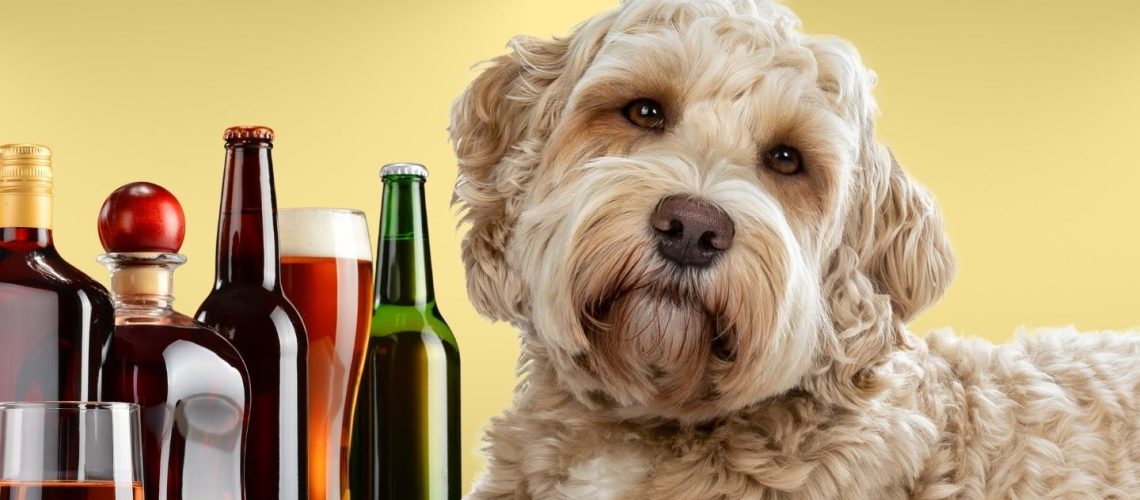No, dogs should not drink alcohol. It is harmful and potentially life-threatening for them. Dogs are unable to process alcohol in the same way as humans do due to differences in their metabolism and lack of enzymes to break down alcohol. Even small amounts of alcohol can cause serious health problems for dogs. In this article, we will discuss the risks, symptoms, and prevention of alcohol poisoning in dogs, as well as addressing some common misconceptions.
Understanding the Risks of Alcohol for Dogs
Alcohol is toxic to dogs and can lead to a range of severe health issues, including organ damage and even death. Dogs are much more sensitive to alcohol than humans, and even a small amount can be harmful to them. It is important to understand the risks associated with alcohol consumption and ensure that your dog is never exposed to it.
Debunking Myths about Dogs and Alcohol
Some people may believe that it is harmless for dogs to consume small amounts of alcohol, but this is not true. No amount of alcohol is safe for dogs, and it is essential to take precautions to prevent accidental exposure or ingestion.
Why Dogs Cannot Process Alcohol
Differences in Metabolism between Dogs and Humans
Dogs have a different metabolism than humans, which means that their bodies process substances differently. While humans have the necessary enzymes to break down alcohol, dogs do not.
Lack of Enzymes to Break Down Alcohol in Dogs
Dogs lack the enzymes needed to metabolize alcohol effectively. This means that alcohol remains in their system for a longer period and at higher concentrations, leading to severe complications and health problems.
Common Sources of Alcohol Exposure for Dogs
Unattended Alcoholic Beverages
Dogs may be attracted to the smell and taste of alcoholic drinks, so it is essential to keep them out of reach.
Food and Drinks Containing Alcohol
Alcohol can be found in various foods and beverages, such as baked goods, sauces, and punches. Ensure that your dog does not have access to these items to prevent accidental ingestion.
Household Items with Alcohol Content
Some household items, such as mouthwash and rubbing alcohol, also contain alcohol. Keep these products safely stored and out of reach of your dog.
Symptoms of Alcohol Poisoning in Dogs
Early Symptoms
Early signs of alcohol poisoning in dogs include loss of coordination, vomiting, excessive drooling, and lethargy.
Progression of Symptoms
If left untreated, alcohol poisoning can progress to more severe symptoms such as seizures, slowed breathing, and heart rate, and eventually coma and death.
Long-term Effects and Potential for Organ Damage
Long-term effects of alcohol poisoning in dogs can include organ damage, especially to the liver and kidneys, and may result in permanent health issues or death.
Treating Alcohol Poisoning in Dogs
Immediate Steps to Take at Home
If you suspect your dog has ingested alcohol, contact your veterinarian immediately. They will be able to give advice on the appropriate course of action based on the severity of the situation.
Veterinary Treatment and Interventions
Veterinary treatment for alcohol poisoning may include intravenous fluids, medications to control seizures, and other supportive care. In severe cases, hospitalization may be necessary.
Prognosis and Recovery
The prognosis and recovery for a dog with alcohol poisoning depend on the severity of the symptoms and how quickly they receive treatment. Prompt veterinary care is essential for the best possible outcome.
Preventing Alcohol Exposure and Poisoning in Dogs
Proper Storage and Disposal of Alcoholic Beverages
Ensure that all alcoholic beverages are stored safely and disposed of properly, minimizing your dog's risk of exposure.
Educating Guests and Family Members about the Dangers of Alcohol for Dogs
Inform family members and guests about the dangers of alcohol for dogs and the importance of keeping all alcoholic beverages out of reach.
Alternatives to Alcohol-Based Products in the Home
Consider using alcohol-free alternatives for household and personal care products to reduce the risk of accidental ingestion.
Frequently Asked Questions
Can Dogs Get Drunk?
Yes, dogs can exhibit signs of drunkenness, such as staggering and disorientation, after consuming alcohol.
What about Alcohol in Medications and Grooming Products?
Always consult your veterinarian before using any medications or grooming products containing alcohol to ensure they are safe for your dog.
Are Certain Breeds More Susceptible to Alcohol Poisoning?
While all dogs can be affected by alcohol poisoning, smaller breeds may be more susceptible due to their lower body weight and size.
Conclusion
The dangers of alcohol consumption for dogs cannot be overstated. It is essential to be vigilant about preventing exposure and ingesting to keep your dog safe and healthy. By understanding the risks, symptoms, and treatment involved in alcohol poisoning, responsible pet owners can provide a secure and loving environment for their pets.











